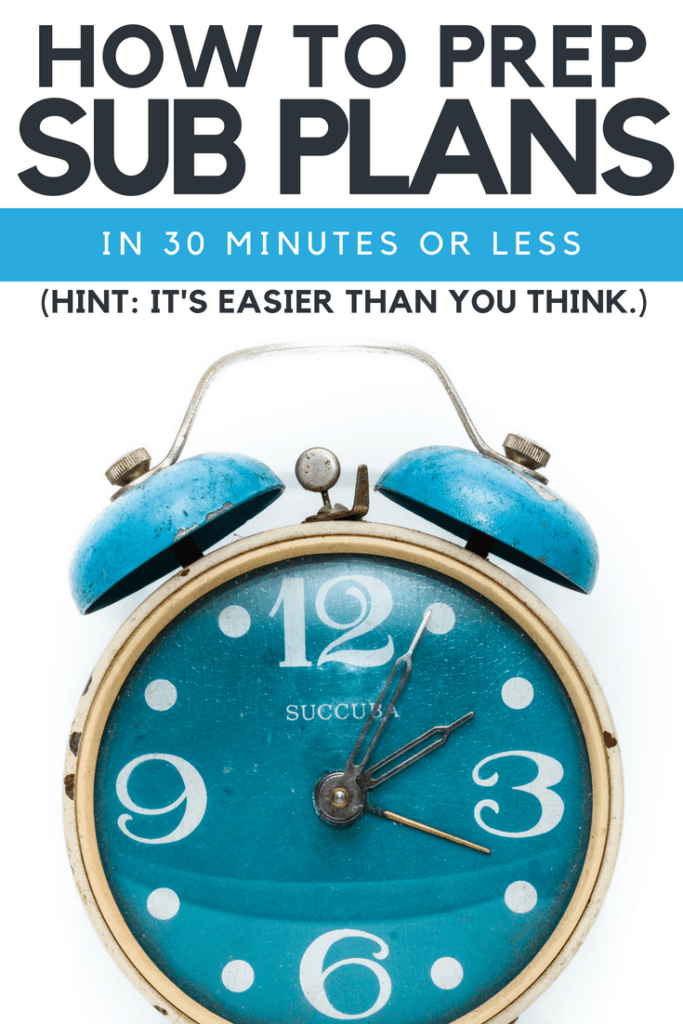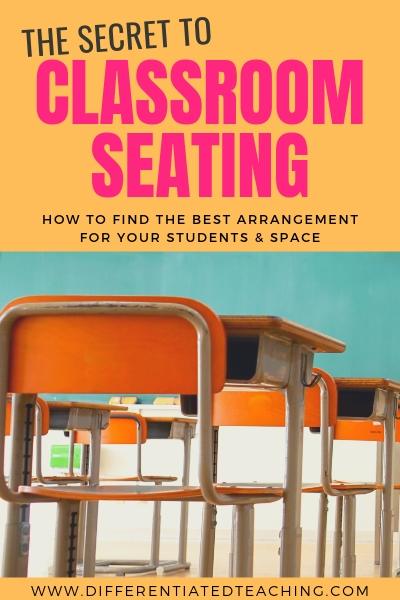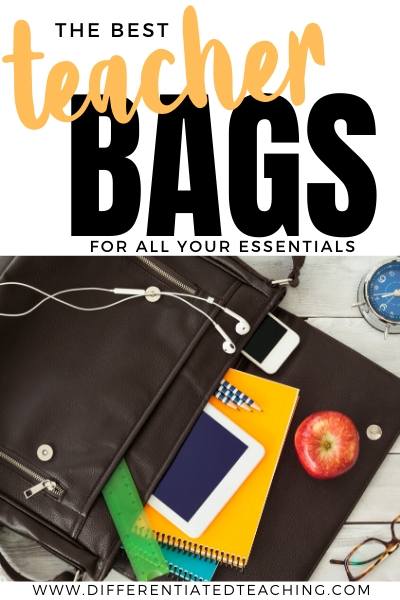15 Super Helpful Tips for New Teachers
Being a first-year teacher is stressful. There are so many things that just aren’t covered in your teacher education program, and it can be nearly impossible to keep up with all the things on your to-do list. Here are 15 great pieces of advice for new teachers from some veterans who’ve gone before you.

Last year, I asked some veteran teachers to share their most valuable tips for new teachers getting ready to start their first year teaching. There were so many great tips that I wanted to share so I grouped the advice into six common themes. Keep reading to find out what the vets want you to know!
1. Give yourself some grace & celebrate successes.
During your first year of teaching, every day is another first. You’ll encounter different challenges and learn something new every single day. One big theme among the advice veteran teachers shared about making it as a new teacher was to have realistic expectations for yourself and celebrate the progress you are making.
Here’s what the veteran teachers had to say:
” Balance your time by accepting help, enjoying life outside of teaching, and by not expecting perfection! ” – Libby from CuriousFox
“Keep a journal celebrating your successes and areas you want to work on.” – Carrie from My Book Boost
” Veteran teachers aren’t perfect and neither are you. Give yourself a break and look at what you have accomplished instead of what you still need to do. ” – Renee from City Girl in Third
2. Ask questions…lots of questions.
Your first year of teaching comes with a million questions. From how dismissal really works on the first day to what to do when you get your first angry parent phone call. It can feel overwhelming if you try to figure it all out on your own.
Before school starts, ask your mentor or a veteran teacher on your campus if you can check in to ask questions throughout the year. As you go through the day, make a list of your questions so you can ask when you have a spare minute.
Questions can be big or small.
Anything from “Where can I find more chart paper?” to “Can I come to observe you teaching place value so I can figure out how to do this?” is fair game your first year in the classroom.

If we expect our students to ask questions to learn, it is okay to expect the same from ourselves!
Here’s what the veteran teachers said about asking questions:
” It’s okay to not know everything!! Your teammates would much rather you ask them how to do something or what something means instead of guessing!” – Georgia from Anderson Academics
” Don’t be embarrassed to ask questions! You will NOT know everything you need to know your first year, and nobody expects you to. Smile and ask! ” – Jan from Laughter and Consistency
3. Don’t try to do it all.
Teacher burnout is real, and the fastest way to get there is by trying to do everything. This is especially true for a first-year teacher. While there is no surefire way to prevent burnout, there are a number of things you can do so you’re less likely to experience teacher burnout.
You can read more about them and take steps to create your own burnout prevention plan in this post about finding work-life balance.
Here’s some tips for new teachers on preventing burnout:
” Keep it simple. New teachers often find themselves burnt out by November. Use premade materials (like those on Teachers pay Teachers) to keep your sanity. ” – Brenda from Enjoy Teaching
” You don’t have to be perfect and original. Give yourself time to relax and sometimes say to yourself, “This is good enough and I’ll make it better next year.” – Jenny from ELA at Home and School
4. Get organized and have the right supplies.
Getting organized can make a huge difference in your first year teaching. Whether it’s collecting student information at the beginning of the year or figuring out a system for tracking missing assignments, you’ll have to figure out how to set up systems.
One big piece of this is having the right supplies. Right now you are probably worried about getting a ton of cute organizers and containers from the Target Dollar Spot, but you can also think about how you’ll organize important information you’ll need to lesson plan and communicate with families.
You’ll very likely have students receiving special education services or intervention supports in your classroom. Here’s a quick tip for new teachers out there: Creating a simple student info sheet, like the one below, can help you quickly and easily track what accommodations and supports you’ll need to plan for when you’re working on lesson planning.
Here’s some more great advice on organizing and preparing your supplies.
” Buy yourself a Keurig. If you don’t life coffee, start to like it. You’re going to need it! ” – Ashley from Ashley’s Brainy Centers
” Create a couple of sets of materials you need for each student when they start with you – nameplate, cubbie/hook labels, birthday icon, workbook, etc – and put it in a large ziplock bag. Keep the sets in a spot easy to access. You’ll get a new student at some point in the year! If you are able to quickly grab everything you need it will save you time and stress.” – Growing Roots Classroom
4. Build relationships first.
Relationships are the foundation of good classroom experiences for both you and your students. Spend time getting to know your students from Day 1, and you’ll have fewer issues with behavior and more engaged learners throughout the entire year. In fact, you could argue that building relationships is the key to good classroom management.
If you’re unsure how to get started with relationship building, check out this blog post about the first steps to take to build relationships with your students.
Speaking of relationships, get to know the school secretary and custodians. Building relationships with them can really help make things easier because the reality is they run the school in many ways!
Here are some more great tips about the importance of building relationships as a first-year teacher:
” Parents are often one of the most intimidating parts of being a new teacher, but you are actually on the same team. Relax, they are people just like you looking out for the best interests of their child. ” – Kelly from Created by Kellyann
” Get to know your students! Learn each students’ background and what motivates them; This builds a trusting relationship which is the first step to classroom management.” – Laura from Discovering Hidden Potential
5. Take care of yourself.
Self-care is SO important.
Your entire workday is spent tending to the needs of your students to make sure they are happy, healthy, and making great progress. However, it is super important that you take care of yourself as well!
Schedule your self-care time during your first year teaching. Otherwise, you might find yourself so overwhelmed with all you have to do that you skip it, and that is a surefire recipe for burnout.
Self-care doesn’t look the same for everyone. Whether this means making sure you have the essentials in your teacher bag or taking time for a pedicure once a month, you’ve got to do what you need to do to take care of YOU!
You can’t pour from an empty cup, right?

Here’s some more great advice about self-care:
” During this exciting and hectic first year remember to take time for yourself through a hobby, exercise, or friends & family. Staying balanced will help both you and your students have a great year. ” – Rachel from Classroom Confetti
” Don’t forget to pay attention to your health! Exercise and a good night’s sleep will help you be the best teacher you can be for your students.” Princess Netherly from Teaching, Love, Cupcakes
6. Classroom management is the foundation for success.
Having a strong classroom management system probably doesn’t belong down here at the bottom of the list because it is one of the most important pieces of having an effective classroom.

Before the school year starts is the best time to start thinking about the important classroom routines and how you’ll teach them during those first weeks of school. Creating a plan doesn’t have to be overwhelming or time-consuming.
In fact, I’ve outlined the six most important things you need to cover in this blog post, and you can make a plan for all of them in under an hour.
You won’t regret the time you put into creating a strong classroom management system and practicing routines at the beginning of the year. While it might seem like a waste of instructional time, it will pay off in dividends as the year progresses.
Here’s what veteran teachers have to say about classroom management for learning:
” Classroom management is one of the critical factors in a positive learning environment. One of the most important things for first-year teachers to consider is how you will organize and teach your classroom expectations, procedures, and routines.” – Queen of the Jungle
” Students come to our classes with multiple capabilities, diverse interests, and awesome brains. One brain-compatible way to optimize more of their talents is to co-lead with them, so they help develop authentic learning tasks to meet your shared goals and rubric criteria. Co-leading accesses unique brainpower in students to increase learning, while it also decreases new teachers busy planning workload. ” – Ellen from Brain Leaders and Learners
You can do this!
You only get to be a first-year teacher once. This last piece of advice is a perfect reminder that you will be great, and to enjoy the ride!
” Your first year of teaching is like riding the world’s most thrilling roller coaster. Your learning is at a crazy scary incline when you first start off, but once you get through that climb the ride is AMAZING! Good luck this year! ” – Learning Lane
If you enjoyed this article, check out these other posts:









